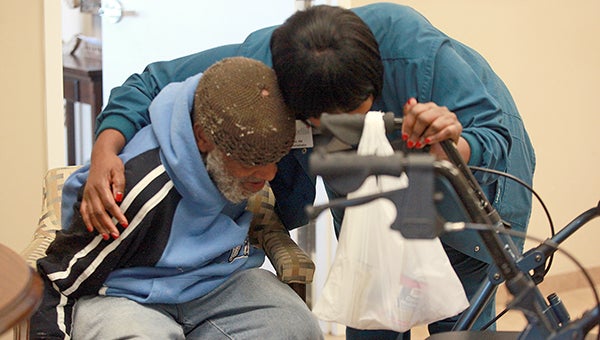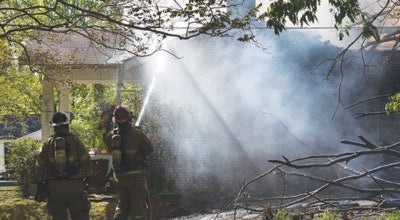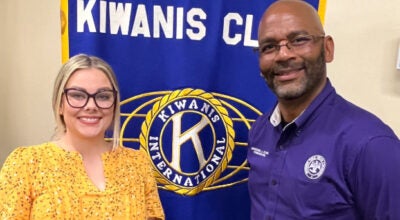Hospice workers appreciate their patients, find work rewarding
Published 10:26 am Wednesday, November 11, 2015

- TRUST BUILDS A RELATIONSHIP: Director of operations at Camellia Hospice Kem Morgan in Vicksburg hugs Mr. James Williams as she helps him off his walker.
November is recognized as National Hospice and Palliative Care Month to show appreciation for people working inside the home of terminally ill patients.
Hospice workers build special relationships with their patients and see them through to the end of their life.
“Whether that’s tomorrow or a year from tomorrow, we take care of patients with conditions that are not expected to get better in the home,” said Kem Morgan, director of operations at Camellia Hospice.
The types of illnesses hospice workers deal with include cancer, congestive heart failure, chronic obstructive pulmonary disease, liver disease and Alzheimer’s.
Camellia Hospice specializes in pain control, symptom management and family care.
“We provide 24-hour nursing care as needed for symptom management. We provide CNA’s, which are certified nursing assistants who assist in activities of daily living including bathing, oral, skin and hair care,” Morgan said.
The hospice also provides a bereavement coordinator and chaplain who lends spiritual family support and is available 24 hours a day.
Trust must be built between a hospice worker, the patient and their family and is a big part of the job.
“We treat patients like they’re our family,” Morgan said about the staff at Camellia. “When we accept your patients or when the family member trusts us to take care of their patients we become a member of their family. They enjoy our honesty and our level of care.”
Morgan said by working inside the patients’ home and developing trust with their families, hospice workers are able to provide daily updates about the condition of the patient to the family.
Family members can request to have hospice care given at a hospital, but Morgan said most of the time when hospice is provided in a hospital setting, death is very close and imminent.
“If the family wants the patient to stay in the hospital, but surrenders all life sustaining actions or measures, what we would do is come in and coordinate care with the hospital staff and compose our own plan of care to provide hospital end-of-life care.”
Eventually, hospice workers are faced with losing their patients to their illness, and dealing with the family’s grieving can be the hardest part of the job. However, Morgan said the most satisfying part of the job is when her patients hug her and say how much they appreciate the work she’s done.
“We do what we do every day,” she said. “We appreciate the recognition, but we do it every year.”





